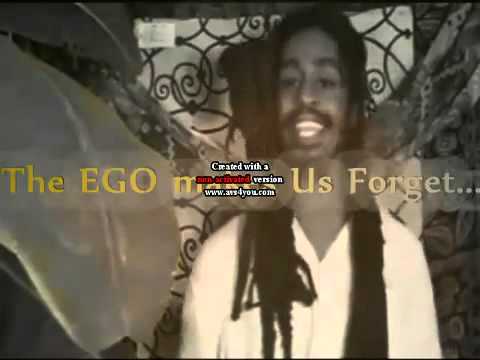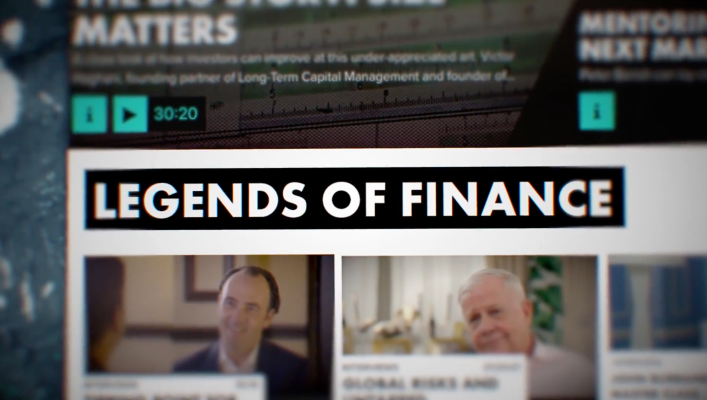The Royal Institution
The maths we learn in school can seem like a dull set of rules, laid down by the ancients and not to be questioned. Jordan Ellenberg shows how wrong this view is through stories that show the power of mathematical thinking.
Subscribe for regular science videos: http://bit.ly/RiSubscRibe
Maths touches everything we do, allowing us to see the hidden structures beneath the messy and chaotic surface of our daily lives. Maths is the science of not being wrong, worked out through centuries of hard work and argument.
Jordan Ellenberg is a professor of Mathematics at University of Wisconsin, and the ‘Do the Math’ columnist at Slate. His book ‘How not to be wrong: The hidden mathematics of everyday life’ was be published in June 2015.
The Ri is on Twitter: http://twitter.com/ri_science
and Facebook: http://www.facebook.com/royalinstitution
and Tumblr: http://ri-science.tumblr.com/
Our editorial policy: http://www.rigb.org/home/editorial-policy
Subscribe for the latest science videos: http://bit.ly/RiNewsletter
Source




I'm really surprised to see negativity in the comments, because I spent this whole talk thinking wow this guy has a really engaging presentation style.
This is the most happy mathematician in the world. I can't even imagine this guy gets ever saddened. I hope he doesn't do this during sex or on a funeral.
how to not be wrong* should be the title
precision is key
he looks a lot like one of the impractical jokers LOL
I have to go to MIT
if the pilot is hit, then the plane will crash too .. not only the engine hehe
The title should be How not to be wrong: The power of logical thinking.
Most of the key points were based on logic not math. In fact the very title is a logic statement since not is a logical operator.
The reduction of variance part was interesting as it actually can add extra effective EV since there is a ton of waste involved in windfalls. It's analogous to ICM in poker tournaments where chips won by a big stack are worth less than the same chips won by a small stack. Can you see why?
Did Donald Trump read this book?
I am currently reading the book, its really awesome! This video really helped land the lottery story.
This was an excellent 30 minute talk, padded to 48 minutes with blank pauses, uumms, telling what he's about to say, and other aggravations. It hurts to watch this, but the good 30 minutes is worth the pain of the other 18.
These old airplanes must have had their fuel tanks elsewhere!
Hi,
Can someone please explain how he got a 5.3% chance of getting no deuces with 7 tickets.
Thank you.
It's really bugging me because my calculations give me 2.53 %
I’ve just realised something about fire it could be used as mathematical binary base-2 number..?
All numbers should be viewed as spins. No spin zero positive spin 1 and negative spin minus 1. And sum of all positive is inverted negative 12. All numbers are powers of some other.
he talks by eroding his energies and never prove a point of math in simple lottery. Sorry son. negative…
Ellenberg? I am Ellenberg!!
Where are your from?
Wald has many contribution to statistics. Thanks
Please don’t hate on him. It’s a misunderstanding. The title doesn’t explain that the title is the name of his book, so it basically half clickbait. That’s why he is talking about his book. The book is actually great!
Every now and then, he 'snorts' through his nose, which 'gusts' into the lapel mic!
wow sal's punishment is going really well!
How did he figure out the percentages of no deuces through 7 deuces?
Want to excel at math? Ban homework, ban exams…and no exam grading.
Can one of the people that didn't find him annoying explain to me the last part cause i couldn't make it to the end. Fell asleep yesterday but now i still want to know the answer
Misleading title don't watch
The short story he told is called survivor bias. Veritasium covered this in a very fun way.
If you have no other words but "fuselage" for it (wtf), you deserve bullet holes in it. Get some sensible words of your own, English.
I want to write the largest number possible using 10 characters, which of the following is the biggest?
999999999
99999999!
999!^9999!
9999!^999!
999!⬆9999!
9999!⬆999!
9!⬆999999!
Or some other number?
Great presentation, very engaging and thought provoking , thank you RI!
Does he ever get to the point? He keeps going off into tangents
@ 8:06 the expected value of the lottery ticket is not 79.8 cents, it's 59.1 cents.
The error is in assuming that a 'free ticket' has the value of the ticket price, when the value is actually the expected value of the ticket.
This produces an equation like:
n = 1/9.3 + 4/39 + 15/80 + 5/47 + n/6.8
n-n/6.8 = 1/9.3 + 4/39 + 15/80 + 5/47
5.8n = 6.8x(1/9.3 + 4/39 + 15/80 + 5/47)
n = (6.8/5.8)x(1/9.3 + 4/39 + 15/80 + 5/47)
which works out to be $0.5908…
One of the other speakers used the airplane story… can't remember the other one… watched too many so far…
I hope they left all the umms out of his book. If I had a dollar for every umm or uhh in this lecture I could buy a 1000 lottery tickets.
My observation has been that when using “quick picks,” the lottery appears to be set up to “share” by giving several people the same combination, thus spreading out a large winning and creating more winners with smaller amounts. Many large totals are split among several people who admit they used “quick picks.”
I believe the reason they controlled the numbers selected was to make finding the winning tickets easier.
Dr. T brought me here
This reminds me of the Chinese fortune cookie problem. In Canada they have a lotto called 6-49. Or in combinatronics 49 choose 6. Or 13.9 million combinations
In many Chinese restaurants they give out fortune cookies with your bill. People would use these numbers for picking lotto numbers. Of course there was no better chance to win then using any other 6 numbers then the 6 that was on the fortune cookie. What people did not realize was the printer of the fortune cookies was lazy and they did not have a random number generator for the six numbers. So the printer printed a few thousand fortune cookies using the same 6 numbers. So purely by chance of course after many years the lotto number matching the fortune cookie came up. The lotto commission discovered many people won using the same 6 numbers and people were disappointed to share the jackpot with many others. At first the commission suspected fraud but soon found out that people were using the numbers on the fortune cookie. The commission talked to the printer and asked them to use more random numbers when printing fortune cookies. So the advise in Canada is to NOT use numbers from fortune cookies because it decreases your chance of sharing the jackpot.
If he stops and starts and umms and ahhs it is probably because he is slowing down his thinking, he has a tested IQ of 180.